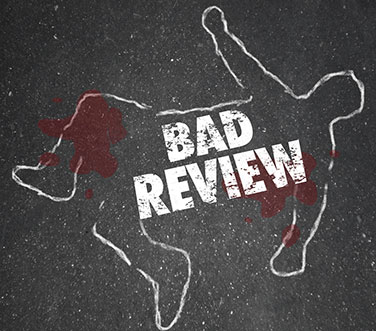- Home
- Business Reputation
- How Long Does A Reputation Campaign Take?
How Long Does A Reputation Campaign Take?
SHIELD

- By: jeremy
- July 30, 2020
- Tags: #ReputationCampaigns

One of the first questions we get from most of our reputation management clients is “How long will reputation management take?”. (The next question is of course “how much does ORM cost”.) Their anxiety is understandable considering that more than 80% of consumers now search Google before doing business with a company. What Google’s first page says about your business practically determines how potential clients and partners see you. And this is why determining just how long it will take to conquer that first page and secure your brands online reputation is not as simple as you might think.
Quick answer:
How long does ORM take?
Removals: ~1 week
Push Down Search Results: Average 10 months
Improve online reviews: ~2 weeks
Longer answer:
At Shield Reputation, on average, an online reputation management project takes about ten months. But…
But that is a wildly misleading number because every campaign is different and there are many factors to consider. Some reputation marketing campaigns can never be considered “done”, only improved. Here’s why.
Reputation Management Timelines, Key Factors To Consider
There are several factors that determine the length of an online reputation management (ORM) campaign. Until you understand them, you’ll most likely underestimate the work that goes into improving online sentiment. Let’s quickly analyze some of the key factors:
The Existing Online Reputation of a Brand
The existing reputation of a brand has a huge impact on its overall ORM strategy. If a brand already has a positive presence on the first page of search results for its main keywords, it’s relatively easier to secure the remaining spots. This is because those results are already “authoritative”. It means less work will need to go into boosting and securing them.
However, if your target keywords are already showing negative articles, forum threads or social media posts in the top results, quite a bit of work will be needed to to either remove them, or push them back out of sight. This is why having no presence on the web at all is sometimes better than having a negative online reputation.
Here is an approximate timeline illustrating how long an ORM campaign may take based on how much work needs to be done:
Existing Reputation
Terrible
12+ months
Bad
~12 months
Fair
~9 months
Good
~6 months
Excellent
–


Building a positive reputation from scratch takes time, but it’s still easier than countering negative content that’s ranking high.
The Strength of the Competition is a Factor Too
This is probably the biggest factor that determines the complexity and length of an ORM campaign. If there’s a lot of competition for your target keywords and other companies are heavily investing in SEO, SEM, link building and social media, then your job becomes harder.
Google’s priority is to display the most relevant and high quality search results for every keyword. It uses more than 200 ranking factors to determine the quality and the relevance of every search result.
When the competition for a particular keyword is high, you need to outperform your competitors on as many of those 200 factors as possible.
Below is a chart that shows the approximate difference in resources needed to improve brand reputation when factoring the relative strength of competitive online results:
Strength of Online Competition
Resource Multiplier
Very Strong
5x
Strong
4x
Average
2x
Weak
1x
Links Make the Competition Strong
The link profile of a site is one of Google’s key considerations when ranking content. When other high quality and reliable websites link to your content, Google considers this a vote of confidence—which is why the number of high quality backlinks pointing to your site is usually directly related to your search rankings.
But acquiring these links is not as easy as it used to be.
A few years ago, you could simply buy a few hundred backlinks in bulk and rise to the top of the search results in a matter of days. But following the same strategy today can get you penalized or even blacklisted.
These days, getting backlinks from authority sites requires a complete link building strategy. It can take months and cost thousands of dollars per backlink for the most challenging types.
And even when you do get a link from a high authority site, there’s no guarantee when Google will actually index it and consider it as part of your link profile.
In short, when the competition is high, rising to the top of the search results takes time, which is why you need to be patient.
Content Marketing Efforts and the Brand Story
A strong positive story is the best tool for reputation management.
A great content marketing strategy tells a compelling story. The problem is that brands engaging in reputation management usually have a problem with their existing story. At Reputation X we like to call this the “brand mythology”. Turning the mythology around can be tough.
A well-designed and compelling content marketing strategy can make a big difference as to costs involved to improve online sentiment about the brand. Think of it this way, if the story is compelling and positive it could go viral, or close to it. When that happens, other people are improving the reputation of the brand for you because they are sharing and creating content for the brand – for free.
For example, the chart below shows how costs multiply at an inverse rate to quality and quantity of the existing content marketing effort. The better the marketing effort (and quality of the story) relative to competing online content, the lower the costs for brand reputation management services.
Very Strong
0x
Strong
1x
Average
2x
Weak
3x
In other words, if a brand engaging in online reputation management has a less than compelling story and a small or nonexistent content footprint online the campaign will be far more difficult. But if a brand has a compelling story it’s easier to get people to create great content around it. Easier means fewer resources are needed and costs are lower.
Remember: The best thing a brand can do is to have a strong story people, bloggers, and journalists want to share and create content around.
Another benefit, sites with superior content can even make it to the top of the search ladder with fewer backlinks than their competitors because sites that link in are often of better quality.
Existing Online Assets and Profiles
Other than your own website and blog, there are several key online platforms where you need to secure your brand name. If you don’t already have well-managed and populated profiles on Facebook, Twitter, Instagram, Google+, LinkedIn, Pinterest and several other key social media platforms, you’ll need to invest in building them before they can play a positive role in your ORM strategy.

SEO Outreach and Influencer Marketing
Another key aspect of ORM is reaching out to the key influencers and opinion-makers in your niche to engage them in building your online reputation.
Influencer marketing has become a huge business over the last few years because of the impact that online influencers have on consumer behavior. Companies are investing hundreds of thousands of dollars in engaging micro-influencers who are popular in small sub-niches.
Getting these influencers on board with your ORM strategy can speed up your progress and help you achieve better results faster.
There is a 10 to 12 week lag time between performing SEO and seeing results.
The Lag-Time of Search Engines
There is a 10 to 12 week lag time between performing SEO and seeing results. SEO stands for Search Engine Optimization. This estimate is just an average, and your mileage may vary. The best reputation management companies back up their content and public relations work with strong search engine optimization. They use SEO outreach techniques to get publishers to mention, cite, and link to positive content. Those links are recognized by Google eventually. But to see the SEO efforts reflected in search results requires a bit of patience.
How Long Does Review Management Take?
Ethical online review management must proceed at the same approximate velocity normal reviews have in the past. Put another way, if a business has gotten five reviews per week on average in the past, the same approximate time should be taken for new reviews. This is to help assure new reviews do not get flagged. If a lot of reviews show up suddenly, this may seem unnatural to review sites like Yelp. The reviews are likely to be hidden, even though they are real. It just looks weird to see a lot of reviews showing up all at once. Keep in mind that if you already have ten reviews it will take less time than if you already have 500 reviews.

Wrapping Up
As apparent from this post, there are just too many variables involved in an ORM strategy to clearly determine exactly when you can start seeing results. The answer depends heavily on the existing reputation of your brand and the competition in your industry, the maturity of the content strategy, the quality of the brand story, and search engine optimization factors.

